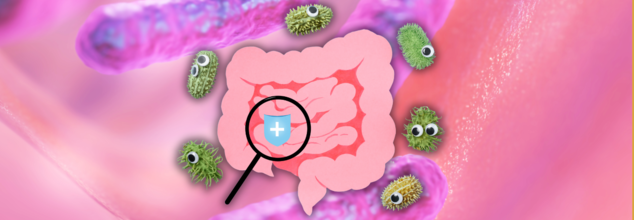
This Japanese Man Took Probiotic Supplements For Healthy Gut- Weeks Later, He Developed A Fatal Infection
Probiotic supplements promise a healthier gut, but what happens if it become deadly? In a stunning Japanese case, a man's everyday probiotic set off a deadly bloodstream infection. The unusual but disturbing event has raised urgent questions about the safety of probiotics, particularly for people with underlying health issues. Is your gut-friendly supplement a silent danger?
In a rare and unexpected case, a 70-year-old Japanese man developed a deadly bloodstream infection attributed to the very probiotic supplements intended to enhance his health. His case, which was reported in BMJ Case Reports, has sparked serious questions regarding the possible dangers of probiotics, especially for those with weakened health.
The man, who had a history of alcohol dependence and underlying medical conditions, was found collapsed in his home and was rushed to the hospital. Upon examination, doctors diagnosed him with metabolic acidosis—a dangerous buildup of acid in the blood—triggered by a severe lung infection, kidney injury, and possibly heavy alcohol use.
To his list of health issues, the patient tested positive for COVID-19. He was put in the ICU, where he was provided with intensive care, such as breathing assistance, a blood thinner, anti-inflammatory steroids, and tocilizumab—a medication used to suppress inflammatory proteins. In addition to treating a secondary bacterial infection, he was administered antibiotics, which caused diarrhea, a typical side effect.
In an attempt to get his gut health back, doctors prescriped a probiotic with Clostridium butyricum, a naturally occurring bacterium in approximately 20% of healthy people. Although considered safe, the probiotic unexpectedly and fatally turned in his instance.
For nearly two months, the patient appeared to be recovering. However, he suddenly developed severe fatigue, swelling, and persistent abdominal pain. Body scans revealed a life-threatening reduction in blood flow to his intestines—a condition that often results in tissue death and organ failure.
As his health worsened, blood work was done, and an alarming finding was discovered: C. butyricum bacteria were found in his blood. This was a definite indication of probiotic-associated bacteremia—a rare but reported side effect in which bacteria from a probiotic supplement get into the bloodstream and infect the body. Genetic testing proved that the strain in his blood was the same as the one in the probiotic he had been consuming.
In spite of medical treatment, the patient's condition deteriorated quickly. His immune system, already compromised by his medical history of colon cancer, high blood pressure, heart disease, and smoking, could not combat the infection. Because of his unstable status, surgical intervention was not possible. In a matter of days, he had multiorgan failure. With no other medical options available, physicians switched him to palliative care, and he sadly died on the 60th day of hospitalization.
How Might a Probiotic Supplement Become Lethal?
Probiotics are frequently utilized to maintain gut health, particularly following antibiotic use. Probiotics replace beneficial bacteria, enhance digestion, and alleviate inflammation. In rare instances, however, probiotics may break through the gut and enter the blood, causing severe infections. This is more likely in people with compromised immune systems, chronic disease, or underlying gastrointestinal disease.
A number of studies, one of which was released in 2019, have established genetic associations between probiotics and hospital patient bloodstream infections. This case contributes to mounting evidence that while probiotics are generally good for many people, they can be dangerous for susceptible populations.
Who Is Most at Risk?
Though probiotic infections are unusual, some groups are at greater risk, which includes:
- Older patients with multiple comorbidities: As in this case, older patients with comorbidities are at increased risk of developing serious complications.
- Patients with compromised immune systems: Diseases like cancer, chronic kidney disease, and autoimmune diseases raise the risk of infection.
- Critically ill or hospitalized patients: The combination of several treatments, including steroids and immunosuppressive medications, can further increase the risk.
Individuals with gastrointestinal abnormalities: An existing gut problem makes it simpler for probiotics to cross the intestinal barrier and get absorbed into the blood.
Should You Stop Eating Probiotic Supplements?
Even with this unfortunate case, health specialists highlight that probiotics are still safe for most healthy individuals. Nevertheless, they advise using probiotics cautiously, especially in high-risk patients.
Experts point out that although probiotics are prescribed to patients suffering from gastrointestinal conditions, rare but serious side effects can take place. He emphasizes that healthcare practitioners should screen a patient's history before they suggest probiotics, particularly in a hospital setting.
Probiotics are commonly lauded for their shield against colds, digestive problems, and severe health ailments. Their advantages are still controversial, though. A new study conducted by UC San Francisco researchers contradicts the notion that probiotics, in particular the Lactobacillus strain, ward off eczema—a disease commonly associated with asthma.
Probiotics, which exist in supplements and foods that are fermented such as yogurt and kefir, are believed to help promote the health of the gut by enhancing immune function and suppressing disease-causing pathogens. According to the World Health Organization, they are "live microorganisms which, when administered in adequate amounts, confer a health benefit on the host."
Released in Pediatrics on August 7, 2017, the research surveyed high-risk asthma infants. Comparing those supplemented with probiotics for six months to those that were not supplemented, researchers saw no apparent effect that probiotic supplementation has in lowering the risk of eczema, fueling the continued controversy surrounding their actual health effects.

Credits: Canva
Mexico Bans Junk Food In Schools To Combat Child Obesity Problem
In Mexico, a government-sponsored junk ban in schools have taken place. It has been in effect from Saturday. The officials have also confirmed that this step is a way to tackle the problem of obesity and diabetes epidemic that the country is facing.
The health guidelines had been published last fall which took a direct shot in salty and sweet processed products. These products have become a staple for generations of Mexican school children. These include sugary fruit drinks, packaged chips, artificial pork rinds, and soy encased, chilli-flavored peanuts.
Mexico's Education Ministry posted on X, announcing that the ban had become a law. The tweet read: "Farewell, junk food!" The aim of this step is also to encourage parents to support the government's crusade by cooking healthy meals for their kids.
Mario Delgado, who is the public health secretary said, "one of the core principles of the new Mexican school system is healthy living. There is a high level of acceptance of this policy among parents."
Obesity In Mexico
As per the Global Obesity Observatory, there has been a rise in child obesity among the age bracket of 12 to 19 years. The report tracked the children between 2012 to 2021. As per a study published in Frontiers in Public Health, titled Childhood obesity in Mexico: Influencing factors and prevention strategies, overweight and obesity in school-age children, in Mexico is rapidly increasing public health problem within recent years. The study also found that obesity rates have a relation with food consumption, as there is an increase in consumption of high energy density food and drinks, whereas lower consumption of fibers.
Have Governments Gotten Involved In Foods Before?
UK has launched a new Food Strategy Advisory Board (FSAB) to improve food security, public health, and sustainability. It has brought government ministers, industry leaders and experts from the food sector together to develop policies to ensure a more resilient and healthier food system.
The FSAB is chaired by Daniel Zeichner MP, who is the minister of state for food security and rural affairs. It also includes other key figures like Professor Chris Whitty from the Department of Health and Social Care, Simon Roberts from Sainsbury’s, Anna Taylor from the Food Foundation, and Tim Smith from Cranswick. These representatives are leading food manufacturers, retailers, and research institutions, which will eventually contribute their expertise to shape a comprehensive food strategy. The aim is to balance nutrition, sustainability, and industry needs.
In the US too, the government through agencies like the US Department of Agriculture (USDA) and Centers for Disease Control and Prevention (CDC) promotes healthy eating plans. There are also resources like the Dietary Guidelines for Americans, 2020-2025 and the MyPlate.gov, which emphasizes on a balanced diet rich in fruits, vegetables, whole grains, and lean protein while limited saturated and trans fats, sodium, and added sugars.
The Dietary Guidelines for Americans is also updated every 5 years, which provides evidence-based guidance on healthy eating patterns, including Healthy US-style Eating Pattern, and Healthy Mediterranean-style Eating Pattern.

Image Credits: Canva
Three 'Simple Drink Swaps' Are Your Natural Prescription For A Sharp Memory
Your daily coffee, your Saturday cocktail, or your afternoon soda may be doing more than satisfying your thirst—they may be silently damaging your brain. One of the world's leading neuroscientists with expertise in Alzheimer's prevention, Dr. Robert Love, advises that the beverage you choose can have a powerful effect on your memory, mental acuity, and brain health over the long term.
In a recent Instagram video, which has reached millions, Love named three popular beverages that can speed up brain decline and put you at risk of dementia. But it's not all doom and gloom—he also shared easy, healthier substitutes that can feed your brain and shield your memory for decades to come.
If you want to keep your mind sharp, it's time to think twice about what's in your cup.
Why What You Drink Matters for Memory?
Brain health is not only about what you consume—what you drink matters just as much. Some drinks can heighten inflammation, upset gut health, and lead to neurodegeneration in the long run. Research has revealed that chronic inflammation and insulin resistance are major causes of cognitive impairment, and hence dietary habits become crucial in the prevention of memory-related diseases such as Alzheimer's.
Dr. Love identifies three beverages that ruin memory and speed brain ageing—and provides simple switches with long-term mental advantages.
Drink #1: Alcohol
Alcohol is arguably controversial in terms of its health impact, but science is becoming more definite: it's unhealthy for your brain.
"Alcohol is neurotoxic—it damages and kills neurons," says Love. "It also disrupts gut bacteria, and what’s good for your gut is good for your brain. By harming your gut bacteria, you’re also harming your brain."
Beyond its immediate effects on cognitive function, alcohol contributes to chronic inflammation, liver stress, and poor sleep—all of which are linked to impaired memory and increased dementia risk.
According to Love, beer is particularly harmful to brain health due to its gluten content and its ability to raise uric acid levels.
"Gluten is inflammatory, and beer also increases uric acid, which promotes belly fat storage," he explains. "Ever heard of a beer belly? That’s uric acid at work."
If you do still intend to drink alcohol on occasion, Love suggests opting for good-quality tequila with a squeeze of fresh lime. "It's one of the cleaner options and will probably do less damage than beer," he points out. The best option for your brain, though, is to reduce or eliminate alcohol consumption altogether.
Drink #2: Soda
Soda is a notorious weight-gain and metabolic-disorder culprit, but its effects on brain health are no less alarming.
"Soda is filled with sugar and has no fibre, so it spikes your blood sugar and insulin levels very quickly," says Love. "This causes inflammation, and inflammation is one of the largest risk factors for Alzheimer's disease."
Consuming high amounts of sugar has also been associated with cognitive decline, memory loss, and elevated risks of neurodegenerative disorders. Research also indicates that regular consumption of soda can decrease the size of the hippocampus—the memory center of the brain—over time.
Rather than grabbing for a can of soda, grab sparkling water with a splash of lemon for a cool, brain-smart option. If you must have caffeine, green tea gives you robust antioxidants that maintain cognitive function and fight inflammation.
Drink #3: Giant Frappuccinos
That gigantic, sugar-ridden frappuccino at your favorite coffee house may be providing you with more than just a shot of energy—it could be silently destroying your brain.
"These beverages have too much caffeine—usually 300 to 400 milligrams—and are full of sugar," cautions Love. "That's not only terrible for your heart and blood vessels; it's terrible for your brain, as well."
Too much caffeine overstimulates the nervous system, causing heightened anxiety, sleep disruptions, and even cognitive impairment with prolonged use. High sugar content, on the other hand, leads to inflammation, insulin resistance, and compromised brain function.
If you're an every-day-coffee fan, opt for matcha or black coffee. They're both rich in brain-fueling antioxidants, but it is important to ensure that they're organic.
"Regular coffee is often filled with pesticides, and those are detrimental to brain function," Love adds. Organic matcha and black coffee offer a cognitive boost with no toxic load.
What are Some Brain-Boosting Habits?
While replacing dangerous beverages with more healthful ones is a fine start, the overall lifestyle decisions count as well. Here are some other steps to help keep your memory and brain sharp:
- Drink plenty of water. Cognition can be affected by dehydration, so be sure to get plenty of fluids during the course of the day.
- Consume a brain-healthy diet. Emphasize whole foods with antioxidants, healthy fats, and fibre to support both your brain and gut.
- Prioritize sleep. Lack of sleep is connected to memory loss and brain degradation. Strive for seven to nine hours of good-quality rest per night.
- Exercise your body. Exercise can help brain function by increasing blood flow and eliminating inflammation.
Brain health has nothing to do with genetics and everything to do with the everyday choices you make. No beverage is going to completely ruin your cognitive abilities tomorrow, but continually drinking toxic substances will catch up with you.

Credit: Canva
This Fruit Is More Effective In Keeping You Alert As Compared To Coffee
Let's just admit it, coffee is our go-to beverage when it comes to getting a quick energy boost in the morning. Of course, Chai lovers won't agree, and neither would those who consume energy drinks. However, all-in-all, for most of us, it is the caffeine shot that pulls us out of our beds, to our workplaces and makes us functional throughout the day.
But what if I told you I have a better option, and that too without any side effects? Yes! Not many know, but apples are excellent energy boosters. Apples, scientifically called Manus, are packed with copper, potassium, vitamins K & C. But besides that, they have a special type of sugar-Fructose, which leads to a steady release of energy throughout the day. Apples also have lots of fibre, which can help balance your blood sugar and give you sustained energy without blood sugar crashes. And while biting on a juicy, crunchy apple may not provide the instant spike in energy you're looking for, it may keep you charged throughout the day.
Coffee Vs Apples For Energy
Although coffee is great for boosting your energy in the morning, it can also negatively impact you. Drinking too much can make you feel jittery or anxious. It can also interfere with your sleep. Having too much caffeine can cause nervousness, anxiety, insomnia, dehydration, upset stomach and fatigue, according to the National Library of Medicine (NLM).
On the other hand, apples contain a natural sugar called fructose, which can serve as an important source of energy for your body, according to the International Food Information Council Foundation. The fructose doesn't give you the same jolt as coffee because it's not a stimulant, but it provides slow, sustained energy that also won't make you feel anxious or affect your sleep quality. If your blood sugar levels are low, eating an apple may help you wake up and feel more alert. Besides, apples are also a great source of fibre and can have lots of phytochemicals and vitamin C, according to the Harvard T.H. Chan School of Public Health.
Other Health Benefits Of Apples
Apples are nutrient-dense, offering fiber, vitamin C, and antioxidants like polyphenols, which contribute to their numerous health benefits. Their high fiber and water content make them filling, aiding weight loss and reducing BMI. Rich in soluble fiber, apples promote heart health by lowering cholesterol and blood pressure, while their polyphenols may reduce stroke risk. Regular apple consumption is linked to a lower risk of type 2 diabetes, likely due to quercetin’s effects. Apples support gut health by acting as a prebiotic, fostering good bacteria.
The antioxidants present in apples may help prevent certain cancers and protect the brain from oxidative stress, potentially lowering the risk of Alzheimer’s. Quercetin in apple skin may also aid in reducing asthma-related inflammation. Additionally, apples may contribute to better mental health, improved digestion, and a lower risk of GERD. While more human research is needed, apples remain a versatile and beneficial addition to a healthy.
© 2024 Bennett, Coleman & Company Limited

